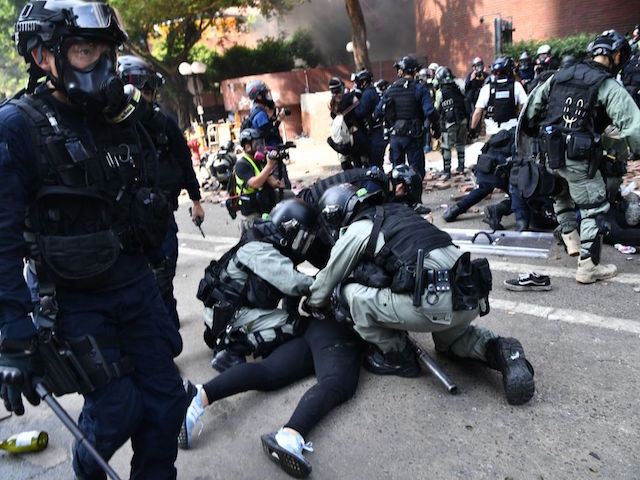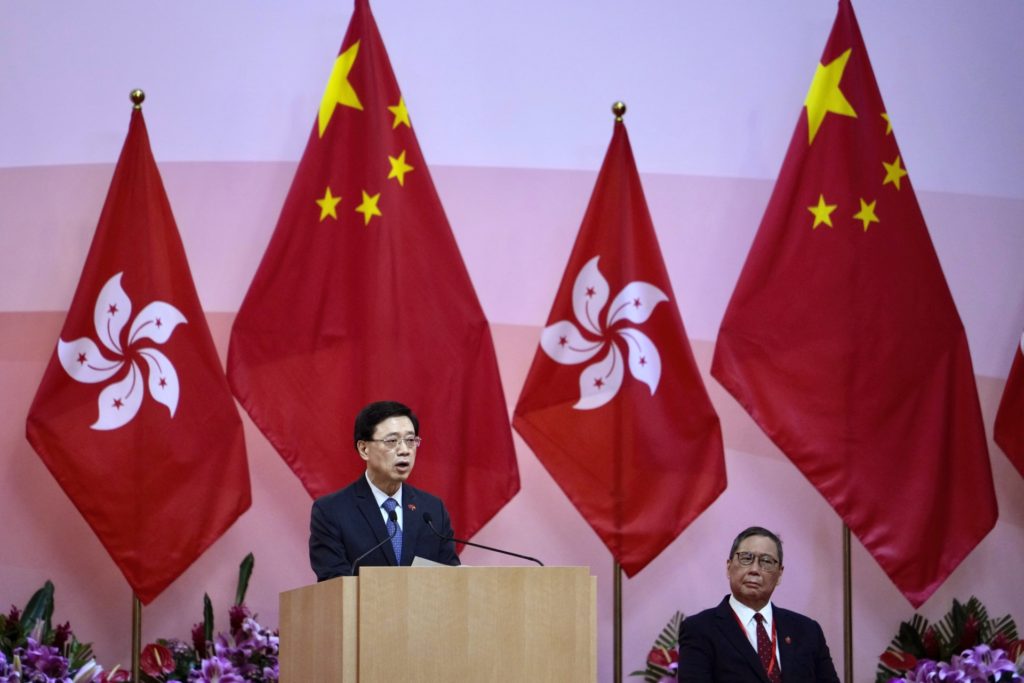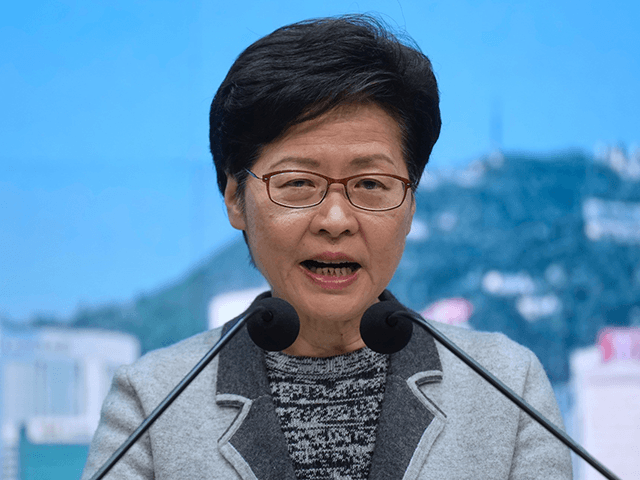Carrie Lam, the massively unpopular chief executive for the Beijing-controlled government of Hong Kong, announced Monday morning she will not run for a second five-year term in May.
According to China’s state-run Global Times, the 64-year-old Lam privately told the regime in Beijing she would not seek a second term as far back as March 2021. Her public reason for retiring was to spend more time with her family.
“I will complete my five-year term as chief executive on the 30th of June this year, and I will also call an end to my 42 years of public service,” Lam told a press conference on Monday.
“There’s only one consideration and that is family,” she said. “They think it’s time for me to go home.”
Due to family reasons, #HongKong CE Carrie Lam announced she won’t run in the next CE election. She says her upcoming work includes fighting #COVID19, celebrating the anniv of HK’s return to the motherland & a smooth handover. https://t.co/f5J8RUN9h3
— Global Times (@globaltimesnews) April 4, 2022
Lam complained she spent much of her term under “unprecedented and enormous pressure” from “foreign forces,” including the 2019 protest movement, which the Chinese Communist government claims was orchestrated by Western powers. She said “staunch support behind me by the central authorities” helped her carry on.

Protesters are detained by police near the Hong Kong Polytechnic University in Hung Hom district of Hong Kong on November 18, 2019. (ANTHONY WALLACE/AFP via Getty Images)
While Chinese state media gave Lam a quiet pat on the head for her faithful service, a BBC commentary condemned her as the weak-willed and unpopular leader who helped the Chinese Communist Party kill off what remained of freedom, democracy, and autonomy in Hong Kong:
She took over a part of China like no other, where dissent was tolerated, with a free press, and an independent judiciary.
During her time in power, Hong Kong became a place of state oppression where political opposition has been obliterated.
…
Now you can be sent to prison for singing certain songs, wearing t-shirts with slogans, or suggesting that others light candles at home as a form of protest.
Lam’s decisions exacerbated the unrest of 2019 at every turn, from sparking the protest movement by pushing for an unpopular extradition law that Hong Kongers viewed as an attack on their autonomy, to ham-fisted efforts at crushing the protests with brutal police actions.

Acting Hong Kong’s Chief Executive John Lee speaks at a reception, following the flag-raising ceremony for the celebration of 24th anniversary of Hong Kong handover to China, in Hong Kong, Thursday, July 1, 2021. (AP Photo/Kin Cheung)
Lam was one of 11 individuals sanctioned by the U.S. Treasury Department in August 2020 for “undermining Hong Kong’s autonomy and restricting the freedom of expression or assembly of the citizens of Hong Kong.”
The Treasury order singled out Lam for her role in implementing the authoritarian “national security law” imposed by Beijing to quell the protest movement. Ironically, many observers believe the outrageous national security law was imposed by the tyrannical central government because it lost faith in Lam’s ability to maintain order.
Lam also departs under a cloud of controversy over Hong Kong’s response to the coronavirus pandemic, which has lately degenerated into China’s worst (admitted) outbreak since 2020.
Beijing effectively took coronavirus response out of Lam’s hands last month, dispatching a swarm of health workers and technicians to Hong Kong after Lam backed away from quarantines, mass testing, and aggressive social distancing measures. Like the rest of China, Hong Kong has a low vaccination rate among elderly patients, leading to a high mortality rate for the densely populated city.
The UK Guardian recalled that Lam began her civil service career in the 80s with a reputation as a “good fighter” who relished bureaucratic battles. By 2019, she was pleading with Hong Kongers not to consider her a “sellout” or “puppet” of Beijing in tearful interviews.
“Her time in office has been characterized by numerous missteps that show just how removed she is from the population, and how little she cares about their concerns. Time after time she has failed to stand up for Hong Kong’s interests or defend the city in any way,” Hong Kong expert Louisa Lim told the Guardian.
Much as Lam was promoted from Hong Kong’s Number Two official to the top job at Beijing’s command in 2017, most observers expect the current Number Two, John Lee, will take Lam’s place in May.
Hong Kong’s chief executive is not elected by citizens – direct elections were one of the forcefully rejected demands made by the 2019 pro-democracy movement. Instead, only the “votes” of the Communist Party-controlled 1,463-member “Election Committee” are counted. Former security chief Lee is reportedly forming a team to “run” for the office.

COMMENTS
Please let us know if you're having issues with commenting.